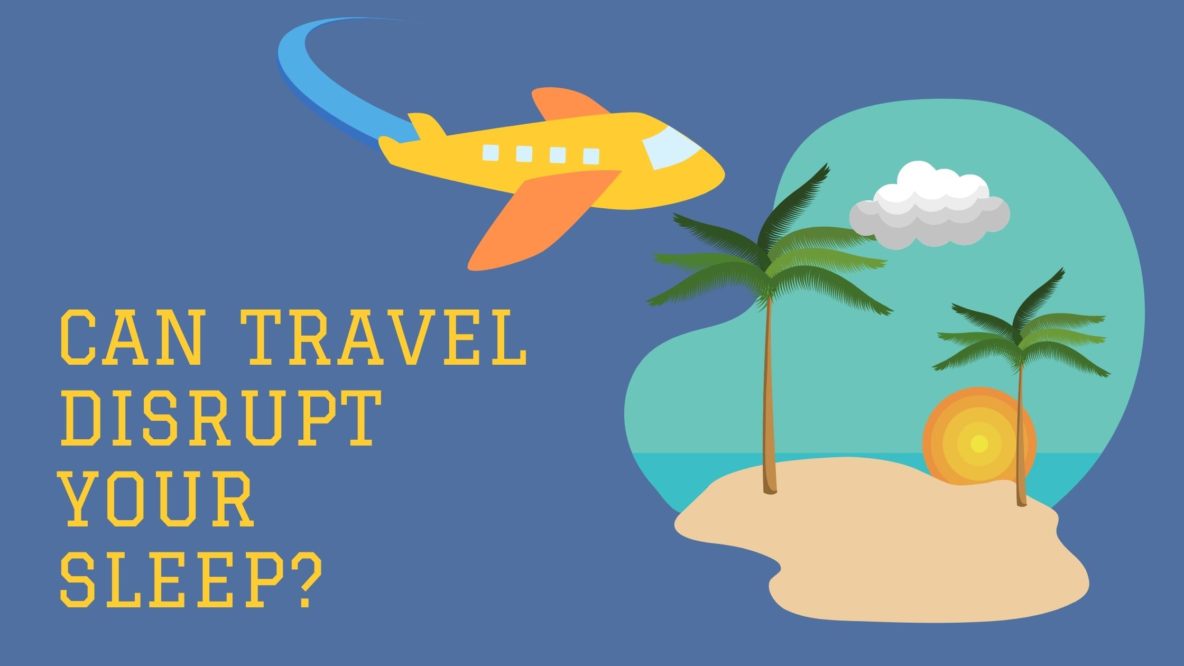Can Travel Disrupt Your Sleep

- A Promising Paradigm Shift: New Research Challenges the CPAP-First Approach to OSA Treatment - September 5, 2023
- Understanding Sleep Meditation Techniques - July 30, 2021
- How Online Learning Has Affected Sleep for Students - July 13, 2021
Traveling can open the door to exciting new experiences. Whether you’re off to visit museums in Europe or to relax on a beach in Mexico, a trip can be the highlight of the year.
But if you’re not sleeping well, travel can become exhausting in a hurry. It’s common to have a hard time sleeping when you’re traveling, both in transit and when you make it to your destination.
Jet Lag
One big culprit of disrupted sleep is jet lag. Changing time zones can wreak havoc on your sleeping schedule. That’s because our bodies have an internal clock, called the circadian rhythm. This internal clock is what regulates our sleeping and waking cycle, makes us tired in the evening, and can make us feel alert in the morning.
Abruptly traveling to a different time zone can really throw off your circadian rhythm. It often takes a few days for your internal clock to match your surroundings so that you feel tired in the evening and can get a good night’s sleep.
Changes to the Schedule
Traveling usually includes changes in daily routines. If you’re going on holiday, you’ll spend a lot more time relaxing, get less exercise, and eat and drink differently than at home. And if you’re traveling for business, you probably have a very busy schedule with evening meetings and additional events.
These changes to the schedule can disrupt your sleep. Even your normal sleep routine is interrupted and this can make it a lot harder to fall asleep when traveling.
Sleeping in a New Bed
Traveling is fun, but sleeping in a new bed isn’t. You probably won’t miss your house or your neighbors in the week you’re away, but chances are you’ll miss your bed. Sleeping in an unfamiliar bed can make it hard to get a good night’s sleep. Most people have worse sleep on the first night they sleep in a new bed or sleep in an unfamiliar room. After that first night it usually gets better, but you might feel a bit short on sleep for a few days.
Is Disrupted Sleep a Problem?
If you’re traveling and you just can’t sleep you’ll feel exhausted and you might not enjoy the trip. But is disrupted sleep a real problem, or is it just an annoyance?
Short-term lack of sleep can have some negative short-term consequences. If you’re not sleeping well for a few days you’ll likely experience daytime drowsiness, brain fog, irritability, and low mood and energy. Short-term sleep issues can also lead to more long-term sleep disruptions. If you travel often, you may find yourself dealing with long-term difficulty sleeping.
How to Sleep Better
Whether you’re traveling for a weekend or a week, sleeping better is the key to enjoying your time away from home. If you’re prone to sleeplessness, there’s no magic cure for a sleepless night. But there are a few steps you can take to help minimize sleep disruptions and maximize your sleep.
- Reduce stress: Planning a trip can be stressful. Start planning early so you don’t have to stress at the last minute. Feeling stressed on your trip can make it even harder to get a good night’s sleep.
- Travel during the day: Do you have a hard time sleeping on a plane or train? Avoid traveling overnight. You may think it’s a good idea to give yourself more time at your destination with an overnight flight, but if you don’t sleep on the trip you’re in for an exhausting day.
- Use an eye mask and earplugs: Your destination may be extremely comfortable, but there’s a chance the hotel might be noisy at night, or that the window shades let in too much light. Traveling with an eye mask and earplugs can reduce distractions and help you fall asleep and stay asleep.
- Don’t plan too many activities: The first couple of days can be tiring, and you might not sleep well the first night. Don’t plan too many activities in the first 48 hours. Instead, prioritize resting so you’ll have lots of energy for the rest of your trip.
Sound Sleep Medical
These are just some of our tips for sleeping while traveling. For more great tips on traveling, or to find out why you’re not sleeping enough, trust your local sleep experts.
